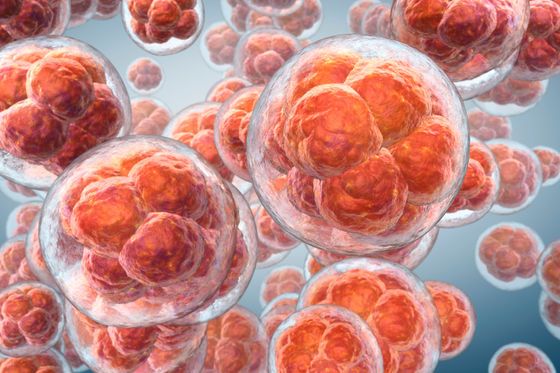A mechanism that can 'reverse' the aging of skin cells is discovered

Studies simulating molecular interactions have shown that by inhibiting the action of certain enzymes, it is possible to restore cells whose cell cycle, which is the process of cell division, has stopped due to aging. .. It is expected that this discovery will greatly advance the fields of anti-aging and cancer treatment that keep the appearance youthful.
Inhibition of 3-phosphoinositide–dependent protein kinase 1 (PDK1) can revert cellular senescence in human dermal fibroblasts | PNAS
https://www.pnas.org/content/early/2020/11/18/1920338117
Simulations open a new way to reverse cell aging
https://phys.org/news/2020-11-simulations-reverse-cell-aging.html
Recent studies have reported discoveries that lead to the development of ' biological age-rejuvenating treatments ' and ' rejuvenating drugs, ' which can reverse aging, which was once thought to be irreversible. The possibilities are emerging. However, the mechanism by which cells that have aged and stopped dividing can re-divide is not known in detail.

Therefore, a research team led by Professor Kwang-Hyun Cho of the Korea Advanced Institute of Science and Technology (KAIST) conducted research to identify enzymes that can reverse cell aging by simulation. The research team first extracted data from past literature on molecules involved in cell aging, and added data from their own research on proliferation and aging of dermal fibroblasts that repair wounds, etc. Did.
As a result of simulation using the database created in this way and an algorithm that predicts the interaction between molecules occurring in the cell, an enzyme called 3-phosphoinositide-dependent protein kinase 1 (PDK1) is involved in the cell aging mechanism. It turned out to be deeply involved.

When the research team then blocks PDK1 in an experiment using a three-dimensional skin tissue model that three-dimensionally reproduces human skin tissue, dermal fibroblasts that have aged and stopped the cell cycle return to their original cycle. It was confirmed that. What's more, the cells 'rejuvenated' in this way restored their ability to regenerate the wounded skin and showed no signs of malignant cancer.
In the future, the research team plans to conduct experiments on body tissues other than skin and animals in order to examine the effect of blocking PDK1 in more detail. If this establishes a method for reversing cell aging, it will be possible to alleviate various symptoms caused by the accumulation of aging cells, 'age-related diseases,' and eventually new cancers. The research team says it will also enable the development of treatments and anti-aging methods.

Related Posts:
in Science, Posted by log1l_ks







